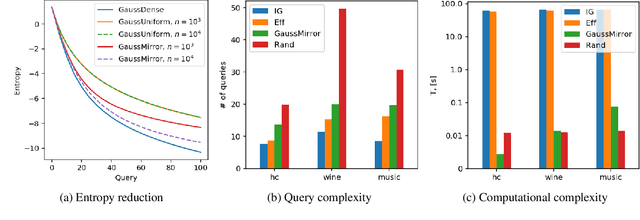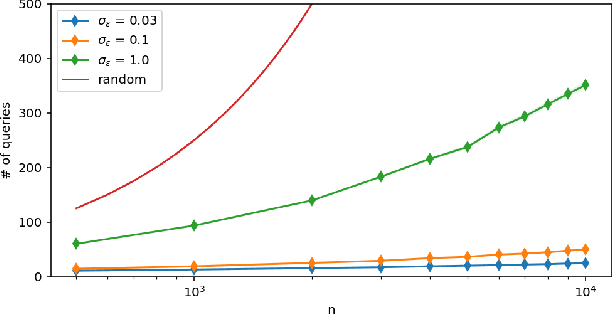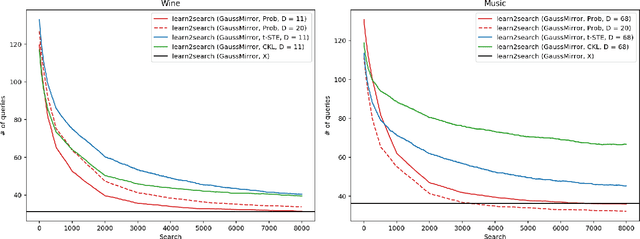Learning to Search Efficiently Using Comparisons
Paper and Code
May 13, 2019


We consider the problem of searching in a set of items by using pairwise comparisons. We aim to locate a target item $t$ by asking an oracle questions of the form "Which item from the pair $(i,j)$ is more similar to t?". We assume a blind setting, where no item features are available to guide the search process; only the oracle sees the features in order to generate an answer. Previous approaches for this problem either assume noiseless answers, or they scale poorly in the number of items, both of which preclude practical applications. In this paper, we present a new scalable learning framework called learn2search that performs efficient comparison-based search on a set of items despite the presence of noise in the answers. Items live in a space of latent features, and we posit a probabilistic model for the oracle comparing two items $i$ and $j$ with respect to a target $t$. Our algorithm maintains its own representation of the space of items, which it learns incrementally based on past searches. We evaluate the performance of learn2search on both synthetic and real-world data, and show that it learns to search more and more efficiently, over time matching the performance of a scheme with access to the item features.
 Add to Chrome
Add to Chrome Add to Firefox
Add to Firefox Add to Edge
Add to Edge